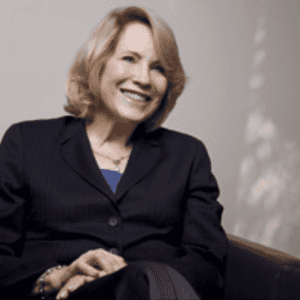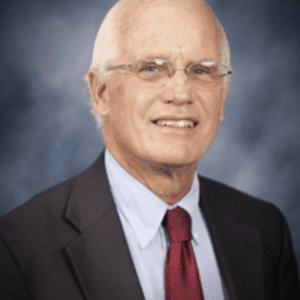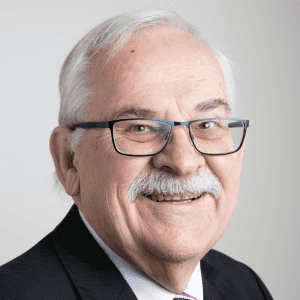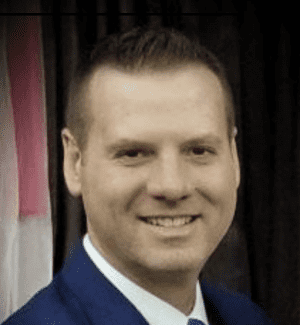The pandemic has challenged healthcare systems around the world. Global responses to the pandemic has been so uneven and varied that it may feel like we are living through a giant experiment everywhere, despite a shared understanding of the science.
Now in its third year, what have we leaned? What is the next step? What choices do we have? How do we balance the social and economic dimensions with managing the health and health system impacts?
We have gathered experts from different countries to share lessons learned under different healthcare systems to shed light on the potential best path forward.
Panelist

Dr. Molly J. Coye
Chief Innovation Officer UCLA Health System
Dr. Molly Coye
Dr. Molly Joel Coye is an executive in residence at AVIA, a network of large health delivery systems seeking to advance care delivery transformation through the identification and deployment of effective digital solutions, and a member of the board of directors of Aetna, Inc.
From 2010-2015, she served as chief innovation officer for UCLA Health and head of the Institute for Innovation at UCLA, where she led the health system in identifying new strategies, technologies, products, and services to support the large-scale transformation of health care. She also advised technology developers, investors, national health systems, and policymakers about disruptive technologies and business models that accelerate transformation.
From 1999-2010, she founded and served as CEO of the Health Technology Center, the premier forecasting organization for emerging technologies in health care. She also served as commissioner of health for the State of New Jersey, director of the California Department of Health Services, and head of the division of Public Health Practice at the Johns Hopkins School of Hygiene.
An elected member of the National Academy of Medicine, she is a member of the board of directors of Aetna, Inc., and serves on the advisory boards of several organizations. She has also served as a board member of the American Hospital Association and the American Telemedicine Association, and chaired the boards of the American Public Health Association and PATH, one of the largest nonprofit organizations in global health.
Panelist

Dr. Richard Culbertson
Professor and Director of Health Policy and Systems Management at Louisiana State University's School of Public Health
Richard Culbertson
Richard Culbertson is Professor and Director, Health Policy and Systems Management at Louisiana State University School of Public Health, New Orleans. He is Professor of Family Medicine and of Internal Medicine at the LSU School of Medicine and Adjunct Professor of Family Medicine at Tulane University School of Medicine. From 2013 to 2015 he was Interim Dean of the LSU School of Public Health. He is a voting member of the LSU New Orleans School of Medicine Admissions Committee.
He holds a Master of Divinity degree cum laude from Harvard University; a Master of Health Administration from the University of Minnesota; and a Doctor of Philosophy degree in Sociology from the University of California-San Francisco. He earned his Bachelors’ degree in History cum laude from Lawrence University.
He has served as the Director of the Master of Health Administration program at Indiana University-Indianapolis; Interim Vice Chancellor for the Health Sciences and Associate Dean of the Medical School at the University of Wisconsin-Madison; Founding Director of Administration and Finance for the University of California-San Francisco Medical Group; and CEO of the Kaiser-Permanente Sunset Medical Center, Los Angeles, as well as COO and other administrative positions for several major teaching hospitals.
He has published 70 articles in scholarly and professional journals with primary interest in academic medical centers and managed care; organizational structure of medical schools; and organization of medical practices to promote physician autonomy. He heads the Ethics Resource of the Louisiana Clinical & Translational Science Center (LA CaTS), and is a nationally recognized lecturer and author in the area of healthcare management ethics by the American College of Healthcare Executives and the Healthcare Financial Management Association.
His major public service contributions are in the area of healthcare governance. He is the former Chairman of the Board of Directors (2002-2005) and Board Member (1994-2007) of the Aurora Health System in Milwaukee, Wisconsin, at the time the largest private employer in the state of Wisconsin. He served as a member of the Governing Board of Touro Infirmary, New Orleans from 2004-2009 and as a member of its Quality of Care Committee from 2009-2015. Touro was the first hospital in the City of New Orleans to reopen following Hurricane Katrina in 2005. He was a member of the Committee on Governance of the American Hospital Association (2006- 2009) and its Regional Policy Board during the same period. His service to the American Hospital Association continued from 2009-2012 as a member of its Leadership Development Council.
He was named a W.K. Kellogg Foundation National Leadership Fellow and an Emerging Young Leader in Health Care by the Healthcare Forum (both in 1985). He is a member of Phi Beta Kappa and Delta Omega national academic honorary societies. He has been a reviewer for Healthcare Financing Review and The Journal of Health Administration Education, and has been a member of the Health Services Research and Development scientific merit review panel of the Veterans Affairs Health System. In 1982 he received the Spurgeon award for “Exceptional career achievement and outstanding community service” on behalf of the citizens of St. Paul, MN.
During 15 years as Professor of Global Health Systems and Development at Tulane University he twice served as chairman of the University Senate Committee on Intercollegiate Athletics and Chair of the NCAA Certification process. He is a Fellow of Tulane’s Newcomb College and of the Murphy Institute Center on Ethics and Public Policy, He was elected Chairman of the general faculty of the School of Public Health during the Katrina years 2005-2006. He served as interim chair of the department of Health Systems Management and interim director of the Institute for Health Services Research. Under his guidance as dissertation chair, five students received their doctoral degrees from Tulane.
In 2015 he received the Allen Copping award for excellence in teaching voted by the students of the LSU School of Public Health. Aurora Healthcare established the Richard A. Culbertson Leadership in Healthcare Scholarship in recognition of his service as Board Chair in 2005. In 2017 he endowed the Richard A. Culbertson Professorship in Health Policy and Systems Management at LSU School of Public Health. Concurrently he and his wife Susan M. Leary endowed the Susan M. Leary and Richard A. Culbertson Professorship in Family Medicine at the LSU New Orleans School of Medicine.
In addition to his academic and scholarly pursuits, he is an avid swimmer, having completed the 2009 Alcatraz Invitational Swim Race from Alcatraz to San Francisco in the non-wetsuit. division.
Panelist

Dr. Stephen Duckett
Professor and Director of the Health Program at the Grattan Institute in Australia
Dr. Stephen Duckett
Professor Duckett has held senior health care leadership positions in Australia and Canada, including as Secretary of what is now the Commonwealth Department of Health, and Director of Acute Health in the Victorian public service. He is currently Director of the Health Program at Grattan Institute.
He was Dean of Health Sciences and Pro Vice-Chancellor (Learning and Teaching) at La Trobe University (1996-2006) and completed a Doctor of Business Administration in Higher Education Management at the University of Bath during that time.
Professor Duckett has a PhD and DSc from the University of New South Wales and is a Fellow of the Academy of the Social Sciences in Australia, the Australian Academy of Health and Medical Sciences and the Australian Institute of Company Directors.
Professor Duckett is currently Chair of the Board of Eastern Melbourne Primary Health Network and a member of the Board of the Brotherhood of St Laurence.
Panelist

Dr. Vivian Lin
Executive Associate Dean & Professor of Public Health Practice, LKS Faculty of Medicine, University of Hong Kong, China
Dr. Vivian Lin
Professor Vivian Lin joined the LKS Faculty of Medicine as Executive Associate Dean in March 2019. She is concurrently Professor of Public Health Practice. She has more than 40 years of experience in public health, with a variety of leading roles in policy and programme development, health services planning, research and teaching, and senior administration in complex organisations.
Vivian was Chair of Public Health from 2000-2013 at La Trobe University in Melbourne before serving the WHO as Director of Health Systems in the Western Pacific Regional Office for 2013-2018, where she led on the global priorities of universal health coverage and sustainable development goals, cross-cutting priority issues of antimicrobial resistance, ageing, and gender-based violence, and on health system development issues including health financing, health law and ethics, health workforce, traditional medicines, service delivery, and health information systems. She continues to be involved with WHO as member of the Technical Advisory Group on Universal Health Coverage in the Western Pacific Region as well as supporting several global projects, including urban governance for health and wellbeing.
Vivian has also worked at senior executive level in health policy in several Australian jurisdictions, including as Executive Officer of the National Public Health Partnership. She has also consulted widely for the World Bank, UK Department for International Development, Australian Agency for International Development, World Health Organization, and various Australian governments at state and federal levels. In these roles, she has developed the first Australian health sector aid strategy for China, the WHO framework for people-centred health care for the Western Pacific Region, and the ASEAN Healthy Lifestyle Strategy. She was commissioned to undertake major studies of indicators used globally for gender equity and health, on risks and regulatory requirements for naturopathy, and evaluation of health promotion leadership programme.
Vivian has served on multiple academic, government and community boards. She was Vice President for Scientific Affairs for the International Union for Health Promotion and Education (2007-2013), chair of Australian National Network of Academic Public Health Institutions (2006-2008), member of the public health committee of the Australian Medical Association (2003-2006), and board member of the Cooperative Research Centre for Aboriginal Health (2003-2009). As ministerial appointee, she was the inaugural president of the Chinese Medicine Registration Board of Victoria serving between 2000-2009 and a member of the Australia-China Council (2006-2009).
Vivian is the author of several leading textbooks in Australia on health policy and planning, as well as on China. She has served on multiple editorial boards for leading journals, including as health policy editor for Social Science and Medicine. More recently, she was a member of the International Panel on Social Progress and chaired its health cross-cutting group. She has served on the medicine and public health panel for the New Zealand Tertiary Commission’s Performance-based Research Funding exercise on 5 occasions between 2003 and 2018. She is presently involved on two Lancet Commissions – on gender and global health and on COVID-19.
Vivian earned her BA from Yale University and MPH and DrPH from UC Berkeley. She was a recipient of the Drotman Award by the American Public Health Association in 1982 which recognizes promising young public health professional who challenge traditional public health policy.
Moderator

Scott Tackett
Vice President at Global Access, Value & Economics Intuitive
Scott Tackett's Bio
Scott M. Tackett, MHA, MPH is currently Vice President of Global Access, Value &
Economics (GAVE); serving as the executive and chief economic advisor and market access leader for Intuitive, Sunnyvale, California. In this role, he leads the strategy, management, and operations of the global GAVE organization. His remit is to work with policymakers, payers, major health systems providers, and clinical and economic decisions makers to address concerns related to value of emerging technologies and its delivery of higher quality and cost-effective care. Scott is an applied health economist and strategist with 20+ years of experience in health care management and leadership roles for life sciences companies and U.S. Honor Roll Hospitals. He has led health economic strategy, and market and patient access operations in more than 30 international markets.
He has been published in many clinical, economic and health care strategy peer‐reviewed journals and regularly speaks at global conferences on health care futures, economic strategies, patient access, and the link between value and technology investment as it relates to achieving the “Quadruple Aim in Healthcare.” His research interests have focused on observational evaluations and integrating predictive analytics to deliver “meaningful value transfer” via intelligent medical interventions, effectiveness, and efficiency. Prior to his current role at Intuitive, Scott was Head of Global & U.S. Market Access & Health Economics, and Director of Medical Outcomes Research & Economics at Baxter.
Scott holds a Master of Public Health with an emphasis in international health economics and a Master of Health Administration with an emphasis in health care strategy from Tulane University School of Public Health & Tropical Medicine, New Orleans, Louisiana. He performed a post‐graduate fellowship training and was the David A Gee Fellow at Barnes‐Jewish Hospital at Washington University Medical Center, St. Louis, Missouri. He holds a Bachelor of Arts in biology and chemistry from Central Methodist University, Fayette, Missouri.


